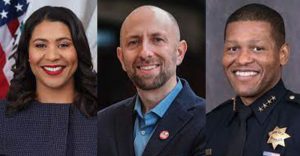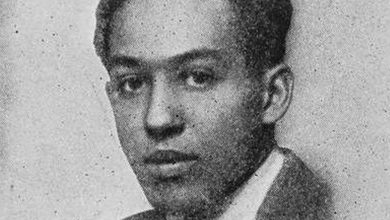Summer Heat Prompts Rattlesnake Advisory in East Bay Parks

By Ken Epstein
Nearly 100 former Holy Names University student teachers are calling on State Attorney General Rob Bonta to make the school’s Board of Trustees use its $55 million endowment to provide scholarships for them to complete their training.
The endowment had been donated to HNU specifically for students planning a career in teaching and the sudden closing of the school in May left them struggling to find other affordable schools.
These teachers, who have been working in classrooms at schools in Oakland or other East Bay schools, must simultaneously be enrolled in university teacher training programs to earn their credential if they wish to keep their jobs.
When a nonprofit closes, the Attorney General decides on the dispensation of remaining funds. As suggested by its very name, the leaders of a “nonprofit” must not be allowed to “profit” from its closure.
Although the school has closed, HNU’s Board of Directors has not been disbanded and still has responsibilities to fulfill.
In a letter to Bonta dated June 26, the students wrote: “At the time of our enrollment, we were provided with the ‘Logan Scholarship,’ which paid approximately half of our tuition.
“This was very important to us because the funds available for becoming a teacher are very limited, and in order to be employed, we need to be enrolled in a credential program. For many of us, the other half of the tuition was paid by federal grants.”
The letter continued: “We are not affluent people. Most of us are teachers of color and/or first-generation college students, and many of us have chosen to serve in our own communities …We had no idea Holy Names was closing. In order to remain employed, we are required to enroll in a different credential program, and in every case the tuition is higher because the Logan (Scholarship) is not available.”
In a public email, Helen Ghebreyesus, an art teacher at an East Oakland elementary school who helped organize the teacher letter to Bonta, said, “We are now without the scholarship and without a university, which has created a financial hurdle and forced some of our peers to leave the profession … Allowing us teachers to use a portion of the funds to pay tuition, will help us to continue to serve our community and students.”
Backing concerns raised by the teachers, Oakland leaders Mayor Sheng Thao and City Attorney Barbara Parker sent a letter dated May 8 to Bonta “to request that (he) object to any proposal from Holy Names University for the distribution of HNU’s $55 million endowment that is contrary to its declared purpose for education in Oakland.
“We … are concerned about the students who have been relying on scholarships from funds controlled by HNU to pursue their teaching degrees (“Logan Scholarships”) and seek to ensure that the funding for local teacher training will continue, even (though) the Board chooses to dissolve the University.”
The letter points out that while part of HNU’s closure plan would allow former HNU students to attend an academic program at Dominican College in San Rafael, these programs and those at other Bay Area universities are too costly for many of the students.
“We understand that 100% of HNU’s undergraduate students receive some form of financial aid, and about 30% are first generation college students from underserved communities. Statistically, these students are unlikely to be able to continue their education at Dominican given the economic hardships the commute presents, and many may discontinue college altogether as a result. These students will be left with college debt and no college degree.”
Because HNU “has not yet been required to seek a decree from Superior Court for its proposed distribution plan, we do not know the Board’s true intentions for its $55 million endowment, the city letter said. “However, we have heard that the Board is making plans to distribute HNU’s endowment outside of Oakland, and perhaps even outside of California for non-educational uses.
“If this is true, such a plan wholly disregards HNU’s declared purpose, violates California’s public policy, and fails the very community it purports to serve.”





